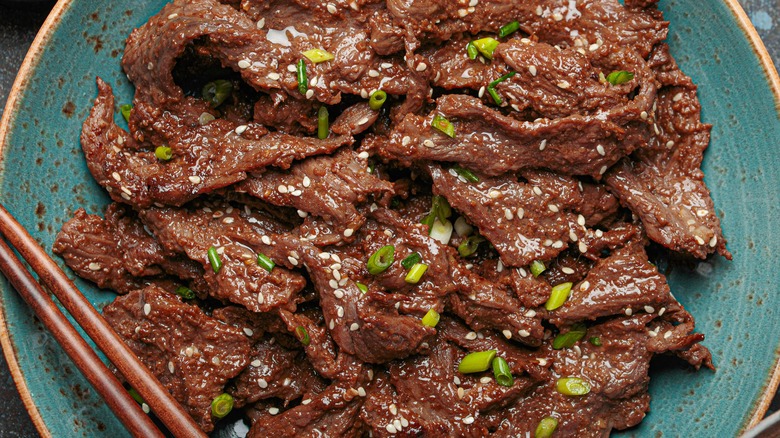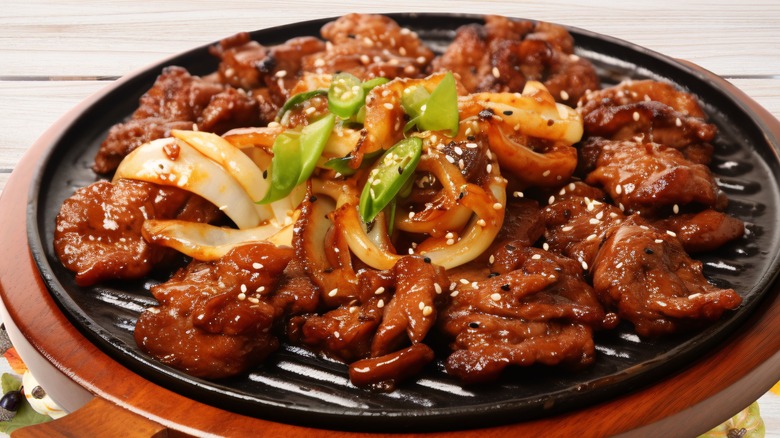What You Need To Know To Make Expert-Approved Beef Bulgogi At Home
Bulgogi, or Korean barbecued beef, is a staple of Korean food courts and it's very doable to make if you're handy with a grill. As with any quick barbecues, however, you want tender meat, and choosing the right cut might seem tricky.
Chowhound spoke exclusively with David Shim, the Executive Chef of COTE Korean Steakhouse, which is one of many New York City restaurants taking part in this year's City Harvest BID event. According to Shim, your first choice for beef bulgogi should be a nicely marbled ribeye, although you have options: "Ribeye is the usual suspect when it comes to bulgogi because it has a good balance of marbling and flavor. You can also use striploin because they are very similar. I have also made bulgogi with thinly sliced flatiron (which most people do not use) and it was amazing!"
A cut from the cow's ribs, ribeye is perfect for grilling because of how tender it is, and thinly sliced ribeye with Korean BBQ sauce is often considered the standard for bulgogi. Sirloin is slightly leaner but, as Shim explains, otherwise not so different. If you try the flatiron suggestion, which comes from the chuck (the cow's shoulder), that is indeed marbled and tender enough to work well.
Making your bulgogi marinade
Speaking of BBQ sauces, bulgogi's marinade is just as important, because this is where the complicated flavors come in. Shim understandably won't reveal his secret ingredients, but he stresses the importance of pears: "Actual pears are better than pear juice, and if you have access to Asian pears, it's even better." A typical bulgogi marinade includes soy sauce, brown sugar, garlic, ginger, and sesame oil, so sweet fruits like pears or apples round out the salty and savory flavors from the other ingredients. Compared to European pears, Asian pears are round and crunchy, and are sometimes called "apple pears" because of this, but they're much sweeter.
Keeping that balance of flavors is important, as Shim notes the sauce shouldn't be too salty or too sweet: "I also like to marinate mine for at least six to eight hours or even overnight. If the flavors are unbalanced (too salty or too sweet), it will be obvious when marinated for this length of time." To avoid over-salting dishes, it can sometimes help to sample a bit of the sauce first, and a bit of lime juice is often acidic enough to clear up the salt if you taste too much. When done right, the flavors cleanly blend together.

